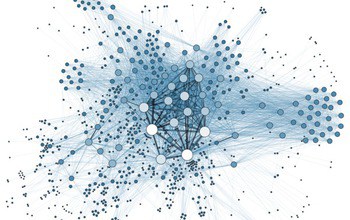The National Science Foundation (NSF) awarded 15 grants totaling $4.7 million to further develop user-friendly, next-generation data resources that can help advance research in the social, behavioral and economic sciences.
For three years, NSF’s Social, Behavioral and Economic Sciences (SBE) Directorate has actively encouraged research communities to envision large-scale data resources and invest in teams and capabilities to develop them. The new grants — supporting five new projects — from SBE’s Resource Implementations for Data Intensive Research (RIDIR) program aim to do just that.
“SBE fields have entered an era where researchers are gaining access to new data sources, and vast amounts of data, that simply weren’t available in the past,” said John Yellen, a program manager for RIDIR. “New resources for developing large-scale databases and associated analytic tools will be critical for ensuring that data are utilized to their full potential.”
Previous RIDIR awards covered a range of areas, from creating new resources for studying child language development and child-caregiver interactions to expanding data services for studying regional methods of cooperation or conflict. Such projects afford the entire SBE community more comprehensive views of subject areas, creating the potential for broad, expansive research, as well as studies that focus on specific topics.
This year’s RIDIR awards went toward proposals to construct databases and associated analytic tools with the potential to enable new types of data-intensive research. The 2016 RIDIR awards, principal investigators and sponsor institutions are:
- Portal to Data and Analysis Tools (P->DAT): Enabling Data-Intensive Research in the Urban Sciences on Linked, Large-Scale Records. Daniel O’Brien, Northeastern University; Robert Sampson, Harvard University.
- DAPPR: Diffusion Analytics for Public Policy Research. Robert McGrath, George Mason University; Jason Windett, Saint Louis University; Yu-Ru Lin, University of Pittsburgh; Jeffrey Harden, University of Notre Dame; Frederick Boehmke, University of Iowa; William Franko, West Virginia University Research Corporation; Bruce Desmarais, Pennsylvania State University Park.
- Developing and Deploying SKOPE: A Resource for Synthesizing Knowledge of Past Environments. Bertram Ludaescher, University of Illinois at Urbana-Champaign; Timothy Kohler, Washington State University; Keith Kintigh, Arizona State University.
- Building Cyberinfrastructure to Enable Interdisciplinary Research on the Long-Term Human Ecodynamics of the North Atlantic. Colleen Strawhacker, University of Colorado at Boulder.
- CHRONOS: Computational and Historical Resources on Nations and Organizations for the Social Sciences. Arthur Spirling, New York University; Robert Jervis, Columbia University.


